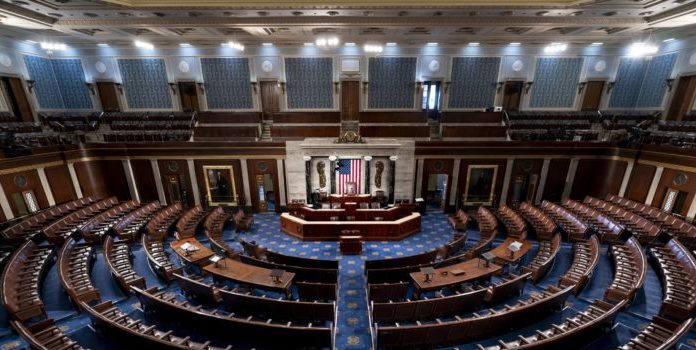(Headline USA) Lawmakers broke for their August recess this week with work on funding the government largely incomplete.
Congress has until Oct. 1, the start of the new fiscal year, to act on government funding.
They could pass a budget, spending bills to fund government agencies into next year, or simply pass a stopgap measure that keeps agencies running until they strike a longer-term agreement.
No matter which route they take, it won’t be easy.
House Republicans, many of whom opposed the debt-ceiling deal and refused to vote for it, are desperately trying to make the government spend responsibly.
GOP leaders have teed up bills with far less spending than the Biden/McCarthy agreement allows, in an effort to win over members who insist on rolling back spending to fiscal year 2022 levels.
House Republicans are also adding scores of social policy add-ons to leverage “the power of the purse.” There are proposals to reduce access to abortion pills, bans on the funding of hormone therapy and sex changes for veterans, and a prohibition of DEI training for employees of the Federal Government.
At a press conference at the Capitol this past week, some members of the House Freedom Caucus, a conservative faction within the House GOP, said that voters elected a Republican majority in that chamber to rein in government spending and it was time for House Republicans to use every tool available to get the spending cuts they want.
“We should not fear a government shutdown,” said Rep. Bob Good, R-Va. “Most of the American people won’t even miss if the government is shut down temporarily.”
Even though the debt ceiling agreement passed with a significant majority of both Republicans and Democrats, conservative opponents of the bill were so unhappy in the aftermath that they shut down House votes for a few days, stalling the entire GOP agenda.
Shortly thereafter, McCarthy argued the numbers he negotiated with the White House amounted to a cap and “you can always do less.” GOP Rep. Kay Granger of Texas, who chairs the House Appropriations Committee, followed that she would seek to limit nondefense spending at 2022 budget levels, saying the debt agreement “set a top-line spending cap — a ceiling, not a floor.”
The decision to cut spending below levels in the debt ceiling deal helped get the House moving again, but put them on a collision course with the Senate, where the spending bills hew much closer to the agreement.
In all, there are 12 spending bills. The House has passed one so far, and moved others out of committee. The Senate has passed none, though it has advanced all 12 out of committee.
Adapted from reporting by the Associated Press

